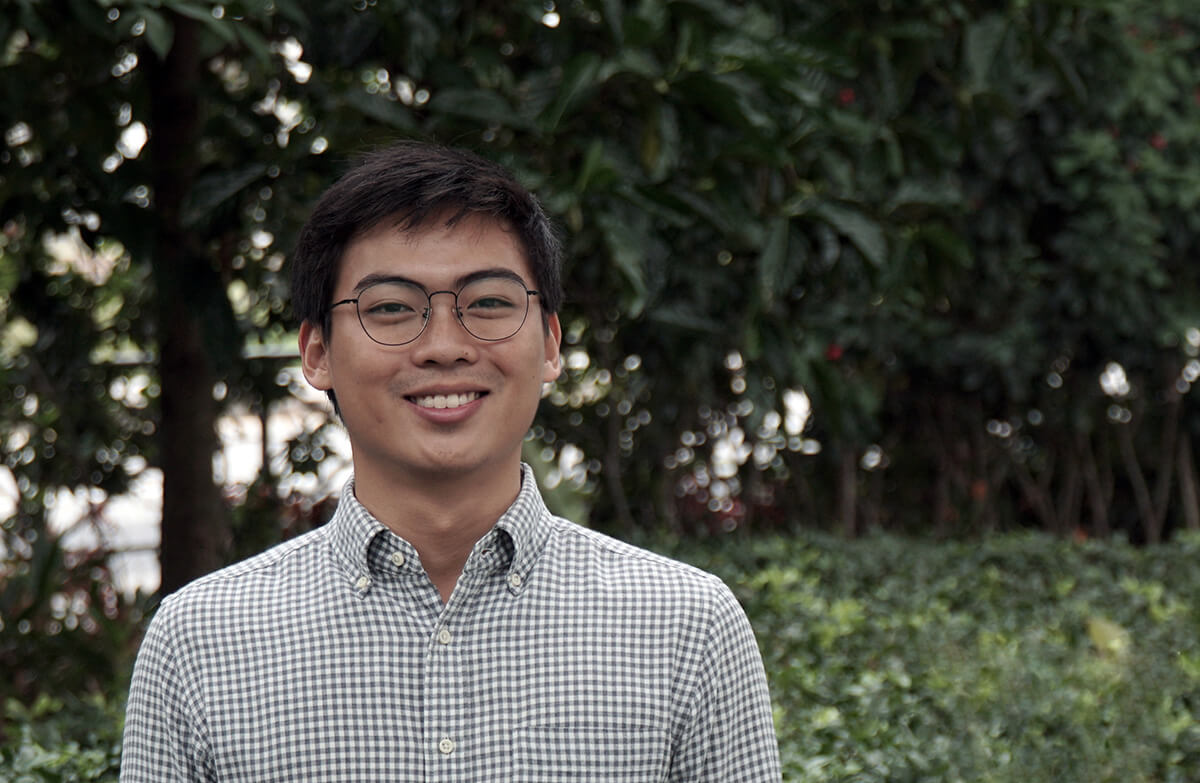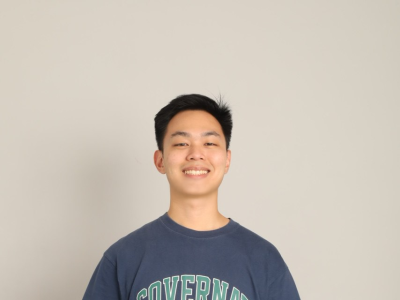
We have Masahiro Tan, another of our founders here to share with us his own experiences in SMU and in the investment industry. As this editor was reading, Masahiro’s story left an impact for sure. The purpose of why we produce these articles is embodied so clearly here. We hope that these words can provide mentorship to you in a subtle, indirect way. We are sanguine that these little sacrifices of our time can have a disproportionate effect on you today.
A little about myself:
What are some of your interests and did these interests guide your decisions on jobs?
My interests have always been around understanding how businesses work. As practical as that sounds, my personal background drove a lot of it. My family used to be in the shipping business, and it was hit badly by the 2008/09 financial crisis. It really shook me on how difficult financial times can put a strain on social ties and emotional well-being.
I have been doing part-time work since I was 16 into my university days, giving badminton coaching and tuition on the weekends. The experience taught me about how difficult it was to earn money and the importance of guiding one’s decisions towards the proper stewarding of it.
As a result, I was determined to better understand how good business decisions are made. This naturally led me to take up an accounting degree (to understand the language of business) and my eventual interest in the areas of consulting and investing. My job now, on the buy-side, is aligned with my interests—deciphering the truth about businesses and management teams so as to generate sustainable and consistent returns on capital.
What did you do after you graduated and why?
I took up a job at Temasek in the Enterprise Development Group (EDG) as an investment analyst. I did an internship with the team in the summer of my third year of university and had a very good experience. I’d like to qualify that it’s not that I had the luxury of choice with regard to jobs—I got rejected numerous times when applying for my summer internship and thankfully scraped through the interview rounds for this. When I got a return offer in my final year of university, I accepted it in relief.
EDG’s mandate is to invest and build up new companies, working closely with management in the areas of people, capital and strategy. As a university student, it was an eye-opening experience, sitting in with management teams and various partners to understand how people thought about business decisions. It was completely aligned with my interests, improving my business judgment and analysis by combining the skillsets of a consultant and investor. I was working on a project that involved the rejuvenation of the asset and strategy of a portfolio company and I enjoyed the broad-based nature of the work.
There was a period of three months before work began and I took the time to spend it with friends and family. It is quite a precious window of time where you pretty much do not have any pending commitments. I visited some relatives in Japan and took them to Hokkaido and went with my group of ACS (Anglo-Chinese School) friends to Bali.
When work starts, things can get really hectic, so I think it’s best to take the chance to spend time with people who matter to you!
What were your feelings coming to graduation and then finally graduating?
I had feelings of apprehension, knowing that the working world is a lot more daunting and less forgiving than school. In my final year, I was determined to do things which my usual risk-averse self would not have done. I did a 6-month exchange programme in Mexico and in the final semester; and together with Hafiz (whom I met on exchange) and Zheng Xiang (whom I’ve been friends with since freshman camp!), we decided to launch CoffeeChats (the predecessor of The Mentoring Circle [TMC]). I think only when I felt graduation was looming and having had a job secured, did I think I should pursue experiences which one would never have post-graduation. It was one of the most interesting years of my life!
After graduation, what I miss most were the friends and laughs during university. The working world is, unfortunately, a lot more serious and friendships are not as easy to cultivate. I do make time to re-connect with friends from universities and that’s when you realise how important it was to have that shared experiences in university.
For those reading, please treasure the time with the people around you even though I know most of you are racing to graduate! No number of internships or hard work can replace those memories.
I think one notable thing TMC has done well is growing the community. I have to admit that the marketing has been amazing! If people saw the first logo and marketing materials we created for the initial events, I wouldn’t blame you for not turning up.
It’s great to see the growing community and vibrancy it possesses. We always felt that the greatest testimony TMC could have was to see mentees coming back as mentors and eventually alumni doing their small bit for the community.
Apart from growing in size, my greatest hope for TMC is for it to become a community of people who authentically care for one another. Giving and caring is always costly, in terms of time, energy and your own resources. I’m guilty of being self-centred, keeping to myself out of comfort and I wanted to change that in the SMU community.
Give and take by Adam Grant was one of the books that inspired me when setting up CoffeeChats. The perspective that the book encouraged was for people to always remember that our little sacrifice often has a disproportionate benefit to the others around us. A fourth-year student spending 15 minutes chatting with a first-year student can open a whole new world of opportunities. I hope members of TMC cultivate sincere relationships with one another and make the effort to sacrifice for one another. Wouldn’t it be great if SMU folks can associate such positive behaviour with TMC?
Currently,
What guided you to accept your current job? Who did you seek advice from?
My job search journey is what guided my decision to want to start CoffeeChats. Like most anxious SMU students who yearn to secure a good job, I sought the advice of seniors who have walked the path before me and were able to provide nuggets of wisdom.
In my second year, I was fortunate to meet seniors during my finance internship and they were extremely helpful in getting me up to speed on things. They shared interview tips and materials, introduced me to other friends in similar fields, and demonstrated amazing generosity with their time.
Before I interviewed with Temasek, I was introduced to three SMU seniors who were already full-time employees in the firm and their advice was invaluable. They shared candidly about the culture, job scope, expectations and challenges, thus allowing me to be a lot better prepared. I was very fortunate, and my hope was to re-create such experiences via the CoffeeChats, where fellow students mentored and helped one another out during the very uncertain and stressful period of determining what kind of career to pursue.

What has been the most challenging moment in this new job?
I think the most challenging part of the job is interacting with people who are much more senior than me. My team is very lean, and we often have to interact with management teams, other investors and partners, government officials, etc., who have significantly more work experience.
Credibility is difficult to establish, and for any junior, I think the only way is to do your homework. Speaking with facts gives a junior a “voice at the table” and grants more confidence to make assertions. I struggled a lot with being vocal at meetings and my bosses often gave me feedback to be more outspoken. I think doing the necessary hard work provided me with more confidence to share my ideas and engage in debates. I am still working on this and, hopefully, I can get much better with more work experience under my belt.
What is the best part of your current job?
I think the best part of the job is related to all buy-sides—access to people. The truth is that investment firms often get access to companies and management because they have capital which people are eager to pitch for. I enjoy learning more about different industries and stress-testing hypotheses with the top minds in the industry. We seek to be judicious with the time of these companies, preparing intensively for these meetings so as to ensure it’s a mutually beneficial engagement.
I enjoy the intellectual rigour in the pursuit of truth about any investment idea. It is a dynamic industry, where you are constantly interacting with various stakeholders and reading all sorts of information to determine probabilistically if you are making a good decision. It involves financial analysis, honing one’s business judgement and assessment of people and teams.
I think there’s also a certain responsibility in the capital allocation business. Investors are stewards entrusted to grow wealth sustainably. We are trying to allocate resources to noteworthy causes, enable entrepreneurs, resolve bottlenecks, build teams, and broker partnerships while aiming for a decent financial return. There’s never a dull day and I enjoy the challenges of this job. I can only hope that when looking back, I contributed in whatever ways possible to the right decisions being made.
Some thoughts on mentoring…
There were many precious interactions and some of these moments as mentioned were during periods when senior students showed me such generosity during my job application periods.
I think one ‘lightbulb moment’ took place during my days as a competitive badminton player during my secondary school/ junior college days. I used to have a coach who I trained on the weekends with and he was very dedicated to my improvement. Although I paid him for court time on a per hour basis, he sincerely sought other ways to improve my game, spending more of his precious time. He filmed my games and we’d review these videos. We went for extra physical training sessions and he came to watch my matches. Eventually, when my family was hit by the financial crisis, I told him that I would have to stop these training sessions as we couldn’t afford them. My coach ridiculously offered to pay me to come for training sessions on the context that I could “train” other students. I was really touched by his generosity. Eventually, I had to discontinue the training, but the experience really influenced how I treated my other students when I was a coach.
I think in any mentoring/coaching relationship, as much as the mentee/student should be taking the initiative, such generosity demonstrated by the mentor/coach can have a profound impact. I’ve always believed that the little sacrifice of time or resources can create a disproportionate benefit to the mentee or student.
To sum up mentoring, it’s about building sincere relationships!
In closing, here’s an advice for all undergraduates: always start from the position of what you could do for someone else. I recognise that though it is good that we are in a competitive environment, the zero-sum-game mindset is very unhelpful and narrow-minded. Spend the time to cultivate sincere relationships and help each other out. This will serve you well in the workplace!

